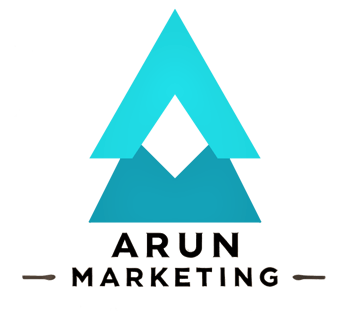The Impact of AI-Powered Search on Digital Marketing in 2025
Search engines have always been the backbone of digital marketing, but 2025 has marked a radical shift. With AI-powered search algorithms now driving results, traditional SEO strategies are evolving at an unprecedented rate.
3/2/20252 min read


Search engines have always been the backbone of digital marketing, but 2025 has marked a radical shift. With AI-powered search algorithms now driving results, traditional SEO strategies are evolving at an unprecedented rate. Marketers must rethink their approach to visibility, engagement, and user experience to remain competitive in this AI-dominated search landscape.
The Rise of AI in Search Engines
Google’s AI Overviews, a feature rolled out widely in 2024, has redefined how users interact with search results. Instead of listing multiple links, AI-generated summaries provide direct answers, reducing the need for users to click through to websites. According to SEMRush, nearly 60% of Google searches now end without a click. This shift challenges marketers to adapt their content strategies, ensuring their brands remain visible even when traditional organic search traffic declines.
How AI Enhances Search Accuracy
Modern search engines leverage large-scale AI models to understand intent rather than just keywords. Google's Multitask Unified Model (MUM) and OpenAI-powered search assistants can analyze vast amounts of data, contextualize user queries, and generate precise answers. AI-driven search also integrates with voice and visual search, allowing users to find products and information through images or spoken commands (Moz).
Zero-Click Searches and the Death of Organic Traffic?
The dominance of zero-click searches means businesses must prioritize alternative visibility strategies. Google’s AI-generated answers often pull data from authoritative sources, leaving smaller brands struggling for direct engagement. However, marketers can still gain exposure through:
Featured Snippets – Structuring content for easy extraction by AI (SmartInsights).
Schema Markup – Enhancing content for machine readability.
Voice Search Optimization – Targeting conversational queries.
Adapting to AI-generated search means embracing these tactics while also building brand authority beyond traditional SEO.
The Role of AI in Content Creation and Optimization
AI-powered tools are now indispensable for content creation, optimization, and personalization. Platforms like ChatGPT, Market Brew, and Semrush’s AI Copilot analyze user intent and refine content accordingly (SEMRush). Some notable trends include:
Automated Keyword Research – AI can predict search trends and suggest high-value long-tail keywords.
Content Personalization – Dynamic content that adapts to user behavior and preferences.
SEO Automation – AI-driven tools that suggest improvements in real-time.
While AI streamlines many marketing tasks, human oversight remains critical to ensure accuracy, creativity, and authenticity.
The Future: How Marketers Should Adapt
1. Optimize for AI-Generated Summaries
Marketers must structure content for AI extraction. Using concise, well-organized information increases the likelihood of appearing in AI Overviews. Providing authoritative, fact-checked content is essential, as AI prioritizes sources with high credibility.
2. Invest in First-Party Data
As AI search reduces reliance on external websites, businesses should focus on owning their audience. This includes:
Email marketing campaigns.
Direct engagement via social media.
Community-building platforms like Discord or Substack.
3. Rethink Paid Advertising
Traditional PPC models are being challenged by AI-driven recommendations. Search ads must evolve into AI-responsive campaigns, leveraging machine learning to optimize performance in real time. Marketers should explore new ad placements, such as AI-curated shopping feeds and conversational commerce integrations.
AI-powered search engines are reshaping digital marketing in ways both exciting and challenging. While traditional organic traffic may decline, brands that embrace AI-optimized content, invest in first-party data, and leverage automation will remain competitive. The key is to blend human creativity with AI-driven efficiency, ensuring that marketing remains both strategic and adaptable.
ARUN.MARKETING
Tailored digital marketing for local business growth.
Community
Subscribe to our Newsletter
hello@arun.marketing
07754458001
© 2025. All rights reserved. | Company Number: 13368421
SEO Services
Content Marketing
Social Media Marketing
Mobile App Marketing
Email Marketing
Analytics Consulting
Local Marketing
Video Production
Market Research
Inbound Marketing
Public Relations
Audio production
Search Engine Marketing
Affiliate marketing
Online Reputation Management
Voice Search Optimization
Conversion Rate Optimization
Influencer Marketing




